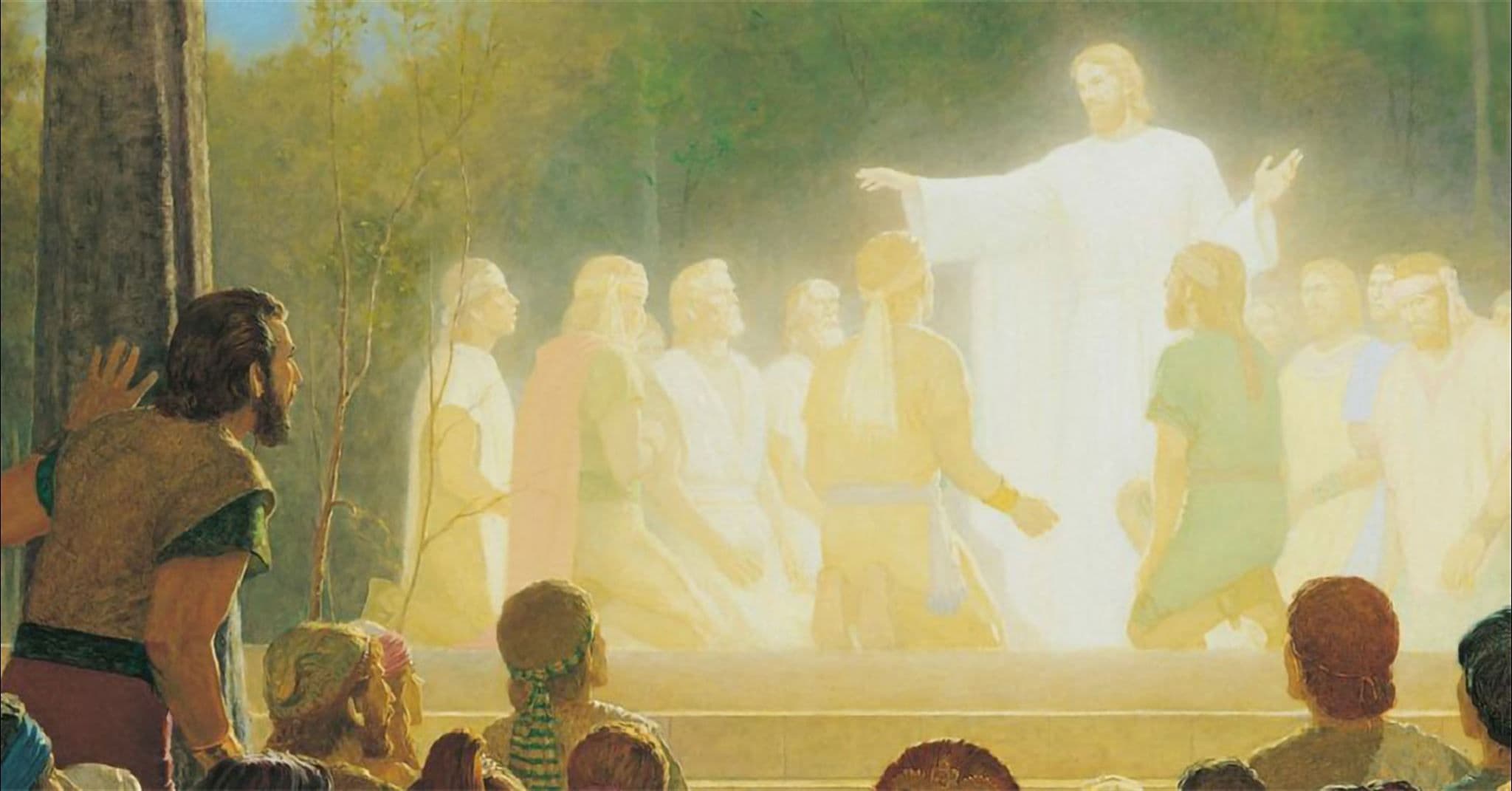Evidence #205 | June 17, 2021
Filled with the Holy Ghost
Post contributed by
Scripture Central

Abstract
Jesus’ promise that those who hunger and thirst after righteousness would be filled with the Holy Ghost reflects the ancient Semitic background of the Sermon on the Mount and the Sermon at the Nephite temple.The prominent Lutheran leader and New Testament scholar Krister Stendahl was once invited by Latter-day Saint Truman Madsen to read and comment on the teachings of Jesus in the Sermon at the Temple in 3 Nephi. Stendahl graciously provided an insightful discussion on the subject which was subsequently published in a collection of essays written by others entitled Reflections on Mormonism.1 In his article, Stendahl took note of 3 Nephi 12:6, which parallels Jesus’ words in the New Testament, “Blessed are they which do hunger and thirst after righteousness: for they shall be filled” (Matthew 5:6). In the account of Jesus’ words to the people of Nephi following His resurrection, the passage adds the phrase “with the Holy Ghost.”2 Stendahl thought that the additional phrase seemed out of place:
The Greek word behind filled is chortazo, which means “fill the stomach,” as one fills the stomach of animals, not “fill up” in the sense pleroo, which is the biblical term for being filled with the Holy Spirit. it is rather unnatural to use the Greek chortazo for making the addition “with the Holy Spirit.”3
John W. Welch in a study published in 1990, observed that while the word chortazo (which means to be physically filled), is not found in the New Testament text of Jesus’ sermon, the use of the phrase “filled with the Holy Ghost” in 3 Nephi reflects the Hebrew background of the Sermon on the Mount.
The promise of Jesus, that those who hunger and thirst after “righteousness” (dikaiosunen) shall be filled (chortasthesontai), is closely related to the last two verses of Psalm 17 in the Greek Septuagint (the “LXX”), a rarely mentioned text that Stendahl apparently overlooked. The Psalm contrasts the filling (echortasthesan) of the stomach in uncleanliness with beholding the face of God in righteousness (dikaiosune): “I shall be satisfied [chortasthesomai] when I awake, with thy likeness” (Psalm 17:15). Here the word chortazo is used to describe one’s being filled with the Spirit and being satisfied by beholding the righteousness of God. … Jesus’ New Testament audience would have recognized his allusion to these words in the Psalm, a passage that would have been quite familiar to them.4
Conclusion
The promise of the resurrected Jesus made in the Nephite temple that those who hunger and thirst after righteousness would be filled with the Holy Ghost is noteworthy in light of the apparent connection between Matthew 5:6 and Psalms 17:15, where the psalmist also used a term for being physically filled in the rare context of being spiritually filled by beholding the face of God.5 And yet the connection, though appropriate, was not an obvious one, as the comment of even a worthy Christian scholar such as Stendahl shows to be the case. It seems even more unlikely that this would have been surmised by an unlearned man in 1830 such as Joseph Smith. This unexpected textual evidence, which most readers would never have otherwise considered, provides a surprising but welcome example of the ancient Semitic background of the words of Jesus in the Book of Mormon.
John W. Welch, The Sermon on the Mount in Light of the Temple (Farnham, Surrey, England: Ashgate, 2009), 52–53.
John W. Welch, Illuminating the Sermon at the Temple and the Sermon on the Mount (Provo, UT: FARMS, 1999), 151–177.
John W. Welch, The Sermon at the Temple and the Sermon on the Mount: A Latter-day Saint Approach (Deseret Book and FARMS, 1990), 113–129.
BiblePsalms 17:15Matthew 5:6Book of Mormon3 Nephi 12:6Bible
Book of Mormon
- 1 Krister Stendahl, “The Sermon on the Mount and Third Nephi,” Reflections on Mormonism, ed. Truman G. Madsen (Provo, UT: Religious Studies Center, Brigham Young University, 1978), 139–154.
- 2 For a treatment of additional discussions of being physically or spiritually filled in the Book of Mormon, see Evidence Central, “Blessing Food after Being Filled,” September 19, 2020, online at evidencecentral.org.
- 3 Stendahl, “The Sermon on the Mount and Third Nephi,” 142.
- 4 John W. Welch, The Sermon at the Temple and the Sermon on the Mount: A Latter-day Saint Approach (Deseret Book and FARMS, 1990), 114–115.
- 5 Presumably, the Greek word reflects what would have been a similar meaning in the Hebrew or Aramaic in which the Psalm was known.